(NOTE: See below for background on Soviet Political Officers or also known as Political Commissars or Zampolits.)
On February 16, 2023, the White House released a new Executive Order: Executive Order on Further Advancing Racial Equity and Support for Underserved Communities Through The Federal Government.
For those who have forgotten or never learned about Communism, Section 2 of the Executive Order repeats history by essentially installing Political Commissars in all agencies in the US government:
Sec. 2. Establishing Equity-Focused Leadership Across the Federal Government. (a) Establishment of Agency Equity Teams.
[Lists the agency heads of State, Treasury, Defense, Justice, Interior, Agriculture, Commerce, Labor, HHS, HUD, Transportation, Energy, Education, Veterans Affairs, Homeland Security, SBA, Social Security, GSA, USAID, EPA, NASA, NSF, and OPM.]
shall, within 30 days of the date of this order, ensure that they have in place an Agency Equity Team within their respective agencies to coordinate the implementation of equity initiatives and ensure that their respective agencies are delivering equitable outcomes for the American people.
(i) Each Agency Equity Team shall be led by a designated senior official (senior designee) charged with implementing my Administration’s equity initiatives, and shall include senior officials from the office of the agency head and the agency’s program, policy, civil rights, regulatory, science, technology, service delivery, financial assistance and grants, data, budget, procurement, public engagement, legal, and evaluation offices, as well as the agency’s Chief Diversity Officer, to the extent applicable.
Agency Equity Teams shall include a combination of competitive service employees, as defined by 5 U.S.C. 2102(a), and appointees, as defined in Executive Order 13989 of January 20, 2021 (Ethics Commitments by Executive Branch Personnel), and, to the extent practicable, shall build upon and coordinate with the agency’s existing structures and processes, including with the agency’s environmental justice officer designated pursuant to Executive Order 14008 of January 27, 2021 (Tackling the Climate Crisis at Home and Abroad), and with the senior agency official designated to coordinate with the Gender Policy Council pursuant to Executive Order 14020 of March 8, 2021 (Establishment of the White House Gender Policy Council).
(ii) The senior designee at each agency shall be responsible for delivering equitable outcomes, to the extent consistent with applicable law, and shall report to the agency head.
(iii) Each Agency Equity Team shall support continued equity training and equity leadership development for staff across all levels of the agency’s workforce.
(iv) Each agency’s senior designee shall coordinate with the agency head, agency budget officials, and the Office of Management and Budget (OMB) to ensure that the Agency Equity Team has sufficient resources, including staffing and data collection capacity, to advance the agency’s equity goals.
Agency heads shall ensure that their respective Agency Equity Teams serve in an advisory and coordination role on priority agency actions.
More about Political Officers / Political Commissars / Zampolit
All communist governments (Soviet Union, China, Eastern Bloc countries, North Vietnam, etc) had political officers in the military, intelligence services and elsewhere in the government, and they were primarily responsible for indoctrination of the state’s narrative. China still has political officers.
The Soviet Army – The Political Officer (Zampolit) in the Soviet Army by Kent J. Goff, MAJ, MI, USAR
. . . . the Soviet armed forces possessed a dual military-political command and control system unique to the Communist totalitarian state. The Soviet Union developed a unique system of political-military controls in accord with its Marxist-Leninist principles and its Communist Party control of society. The Party’s preeminence in all public and private affairs had to be maintained in the military as it did in the Soviet society at large.
Even more so, because the armed forces represented a potential threat to the Party’s control of the state in several ways, institutionally as an alternative governance within the state, and the fact that the military controlled weapons and manpower capable of challenging or even overthrowing the state. Second, the Party needed to use the military as an agent of social control and change internally, as well as the primary means of external power projection in the competition of states.
The political threat of the military to the Party dictatorship was most succinctly expressed by Mao Tse-Tung: “Our Principle is to have the Party control the gun, and never allow the gun to control the Party.” Then what was the Soviet solution for ensuring total dominance of the military by the Party?
The creation of a dual chain of military and political command throughout the armed forces, paralleling the military hierarchy from battalion to the Ministry of Defense, was established by appointing a political “deputy” commander for each military commander. These “commissars,” as they were first called, exercised specific official and unofficial control functions over their military command counterparts. The political officers also served to further Party interests with the masses of drafted soldiery of the USSR by indoctrination in Marxist-Leninism. . . . . .
. . . .This political control system was not benign; the indoctrination, kritika/samokritika, and artificial tension used as part of the Party activities caused friction at best, and outright paranoia at worst, among the military professionals. Indoctrination dulled the critical thinking processes. Repetition of the Party jargon, and in the absence of other information, the Marxist-Leninist formulas became the only framework for evaluating reality.
Kritika and samokritika, criticism and self-criticism respectively, were a core function of the mandatory Party meetings. At these meetings, the political staff was required to not only note who spoke, but exactly what was said. Party members of the enlisted ranks or junior officers were encouraged to freely criticize the military decisions or personal habits of the higher officers if these actions did not fit Party doctrine or norms. The effects of this practice on the commander’s authority must have been devastating. . . .
. . . . This system also encouraged officers to inform on their comrades, both as a self-protection measure (inform on him before he does on me), or as a means to get ahead (tear down the competition.) Kolkowicz relates a morality tale of a general who goes astray from Party norms by punishing a subordinate officer critical of him at a Party meeting. This officer is finally humiliated into begging for another chance, to regain his lost Party membership, that is required for his continued professional survival . . .
. . . .The control system made it a priority to ensure the only loyalty was to the Party, and not to fellow officers, units, or the Army. Trust and loyalty are vital elements among men in combat. . .
. . . .Professionalism, or the development of skills and ideals of the service, was severely retarded by the control system. The many hours of political indoctrination and Marxist-Leninist training could have been better spent. Advancement within the system did not favor the militarily skilled officers, but the politically skilled. . . .
. . . .The potential ability to adapt to crisis situations by the command structure of the Soviet Army was likely very limited. With critical thought processes dulled by the constant barrage of propaganda and Marxist-Leninist formulas, and a habit of cheating to achieve unrealistic norms, the ability to the system to adapt to adversity was unlikely.
The political control system severely punished those who made mistakes by not following the norms of behavior expected by the Party. Thus, a habit of looking for guidance from the Party or higher leadership before making a decision would also slow the response of the commanders in combat. . . . .
. . . While the military professionals were outwardly subservient to the Party system, the frictions the system must have caused, and the reports of defectors, indicate that the regular officers despised the zampolits. . . . .
The Political Officer in the Soviet Army: His Role, Influence and Duties, by Major Michael J. O’Grady, US Army Russian Institute
This paper addresses two major questions: the role of the zampolit, and of political work in general in the Soviet Armed Forces. . . .
Zampolits of wokeness (Michael J. Waller, Center for Security Policy)
Wokeness might do to the American military what no foreign enemy ever could: Fracture the world’s greatest armed forces from within, through divisive political indoctrination and controls. . . .
Political Commissars of the People’s Liberation Army Air Force (US Air force China Aerospace Studies Institute)
Knowing one’s counterparts, who they are, how they got there, and who their replacements might be, is important to both leadership and organizations alike. This report provides an overview of the political commissars of the PLA Air Force.
Party on the Bridge: Political Commissars in the Chinese Navy (CSIS)
As a component of the Chinese Communist Party-led (CCP) political system, the Chinese navy, unlike the U.S. Navy, utilizes political commissars aboard its warships and submarines.
FROM CIA REPORTS:
Duties and Responsibilities of Political Officers (pdf)
In February 1951, a directive of the Central Committee of the Communist Party in Moscow reintroduced the position of Military Kommissar on the staff of Armies. This Military Kommissar is a member of the Military Council (Chien Voyennovo Sovieta), and, as a general officer, is nominally the second in command of an Army; actually he is placed in his position to report directly to the Central Committee of the Communist Party-upon the Army CG, his abilities and activities; and the morale, discipline, political indoctrination, etc, of the Army personnel.
The Military Kommissar has unlimited power and is feared by his Army CG.
The Military Kommissar is not to be considered as the political officer at Army level, since he is on direct assignment from the Communist Party and is responsible only to the Central Committee in Moscow.
Each unit political officer selects the political officer of his subordinate unit; le, the Army Military Kommissar selects the Army political officer; the Army political officer selects the Division political officer; the Division political officer selects the Regimental political officer; the Regimental political officer selects the Battalion political officer; and he in turn selects the battery or company political officers.
Political officers are selected on the basis of directives from the Army Office for Political Affairs, must have a perfect political background, and must have been Communist Party members for 8-10 years.
. . . The regimental political officer, as a representative of the party, is as much responsible for the combat training, morale, and political indoctrination of all regimental personnel as is the regimental commander,
A regimental political officer
- organizes and supervises political instruction in the regiment and Its various units;
- devises programs for the political group leaders twice per week;
- formulates a plan for monthly mass political meetings in the regiment and checks the plans for political meetings led by the political officers of batteries and companies;
- personally directs the party organizers and Komsomol organizers of the regiment;
- periodically checks upon the execution of plans for mass indoctrination meetings;
- personally reads lectures and conducts discussions in the regiment on international and national political themes at least once each month;
- composes a report on the morale and political condition of the regiment twice each month;
- approves the plans for mass political meetings drawn up by the political officers of batteries and companies;
- approves the Instruction plans of the party organizers and Komsomol organizers; issues instruction for political training to be given on rest days;
- supervises the conduct of various political pageants and holidays;
- issues instructions for political indoctrination;
- supervises tactical training in conjunction with the regimental commander; and
- supervises the club (movies, athletics, billiards, recreation-, officers dances, etc), the library, radio programs, and sporting events.
Battery and company political officers are subordinated to the unit commander and to the political section of the next higher unit. They
- conduct lectures for the NCO’s and privates of their unit;
- organize mass political debates and meetings;
- supervise the sporting programs of the unit; and
- report to the political officer of the next higher unit on the morale and political indoctrination of the unit.
NCO’s are given separate lectures on the Communist Party, Stalinism, Leninism, etc, for 208 hours annually by battery or company political officers.
Officers receive political lectures from the regimental political officer or battalion political officer for 208 hours annually on the Communist Party, Stalinism, Leninism, etc. . . .
Cadet Program Promotes Diversity, Inclusion Across Academy Campus (US Air Force Academy, 2021)
. . . .Cadets pose for a photo after graduating from the Cadet Wing Diversity and Inclusion Program this summer, allowing them to advise students on diversity at the U.S. Air Force Academy. Each cadet wears a purple rope across their left shoulder symbolizing their position as a diversity representative.” . . . .
Source Information Report:
. . . An elaborate network of informers and bureaus exists in the Soviet Army for disciplining Soviet Amy personnel who break the rules and regulations of the Communist Party. Political officers and their assistants act as informers. They report to the Regimental Party Bureau all anti-Soviet acts. The Regimental Party Bureau reviews the facts of a case and forwards its recommendations for disciplinary action to the Division Party Commission which makes the final decisions. . . .
. . . Soviet Army officers and Enlisted Men abhor political indoctrination lectures and constantly try to be doing some important work at the time of lectures which will suffice as an excuse for not attending. However, strict disciplinary action, even imprisonment, may follow a continued absence from political indoctrination courses. Soviet officers and Enlisted Men take only the minimum interest necessary, in political indoctrination work to keep from being reprimanded. . . .
Re Soviet broadcasts: “The propaganda is boring to all.”
Re indoctrination training: “They are extremely boring, and are immediately dismissed from any conversation among the men.”
Increase in Number of Political officers in the Soviet Armed Forces
“These political officers are the direct superiors of the entire personnel of the company (Battery) and the eyes of the Communist Party.” . . . . “Political instruction in the armed forces is the main guarantee of the power of the USSR, that every future war will be turned into a class war and that, therefore, the Soviet army must be specially well trained politically.”
Political Officers on Polish Merchant Ships
“25 young Communist and UB agents had been trained to serve as political officers and agents on all the larger Polish merchant ships which travel to countries in which Polish refugees have been granted asylum. . . . . In some cases, the captains of the ships have protested the placing of such unqualified men aboard the ships. The protests have been unsuccessful, and in some instance the captains have been transferred to other ships or released from duty.”
Political Indoctrination in the Soviet Army
“The attitude of Soviet soldiers toward political indoctrination may be briefly qualified as indifferent and apathetic. Soldiers are not interested in political lectures, mainly because they are “dry stuff”, and partly because soldiers feel, instinctively if not clearly, that the political indoctrination is mostly based on lies. Since attendance is obligatory, soldiers have to sit through the lectures and listen to them, or at least pretend to do so.
There are no discussions after lectures, but it is customary for the lecturer to ask the audience whether there are any questions. Everybody is afraid to ask any questions which may be interpreted as criticisms of the regime or of the party policy. Occasionally, however, such questions are asked in spite of possible consequences. They are left either unanswered, or the questioner is cut off with: “So it is, and so it will be.”
Post-Mao Party-Military Relations: The Role of the General Political Department
Political Administration of the Soviet Armed Forces
The political officers who are directly responsible for the training of all troops…aimed at the following objectives:
- Generation of hatred for Anglo-American imperialists
- Preparing the soldier psychologically for war by eliminating from his mind all remaining positive feelings toward the former allies, USA and England
- Educating the soldiers to vigilance, constant battle preparedness and willingness to help the commanding officers in maintaining control over the unit
- Denunciation and elimination of all dissatisfaction among soldiers
Moral and Security in Soviet Army
. . . Each company also had a “political enlightenment dayroom” which contained all types of political literature, newspapers and magazines, such as The Red Star, Pravda, Iszvestiya, Soviet Warrior and Ogonek. This room also contained a small library of selected political literature. The library books were taken to the field whenever the unit went on maneuvers. . . .”
Exploring big ideas: Diversity and Inclusion Reading Room opens at Academy (US Air Force Academy, 19 FEB 2021)
A special reading room at the Air Force Academy might be small, but two professors say it offers cadets and faculty a treasure trove of big ideas and a safe space for open discussion. The Diversity and Inclusion Reading Room in McDermott Library contains “a specially curated selection of books available for borrowing, furnishings arranged for informal discussion and a response board for cadet feedback,” said Daniel Couch, an assistant English professor at the school.
“Our intention is to create an informal space for cadets and permanent party to broaden and deepen their exploration of the issues involved in diversity, inclusion and justice,” Couch said. Mark Jensen, president of the Academy’s faculty senate and a philosophy professor, said the reading room is the result of teamwork between faculty members and the Academy’s ongoing Critical Conversation series that formed in the wake of George Floyd’s Death. . . . .
Combat Regulations of the Soviet Navy: Political Work
As the watchdog of the Communist Party, the political officer is responsible for instilling in servicemen the virtues of Marxism-Leninism, Soviet patriotism, a heightened sense of political consciousness, high morale and military discipline, a readiness to obey all combat orders during battle.


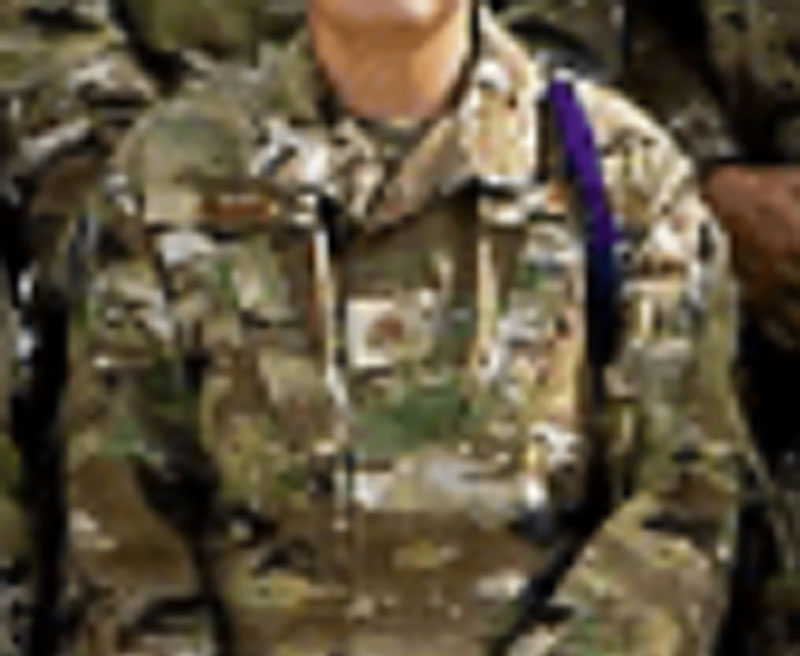
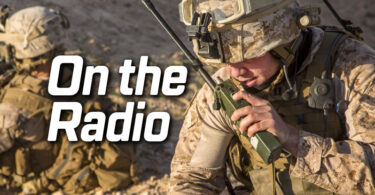
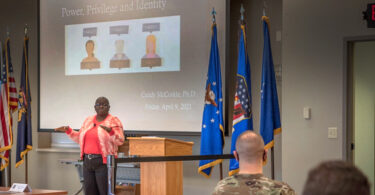
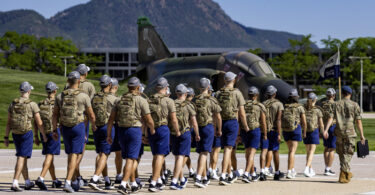

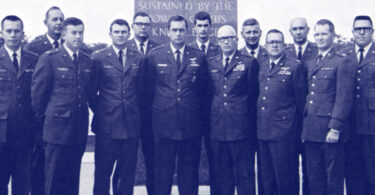
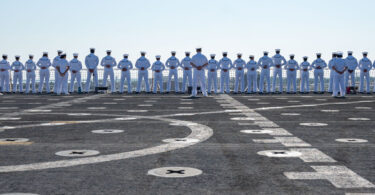
Leave a Comment